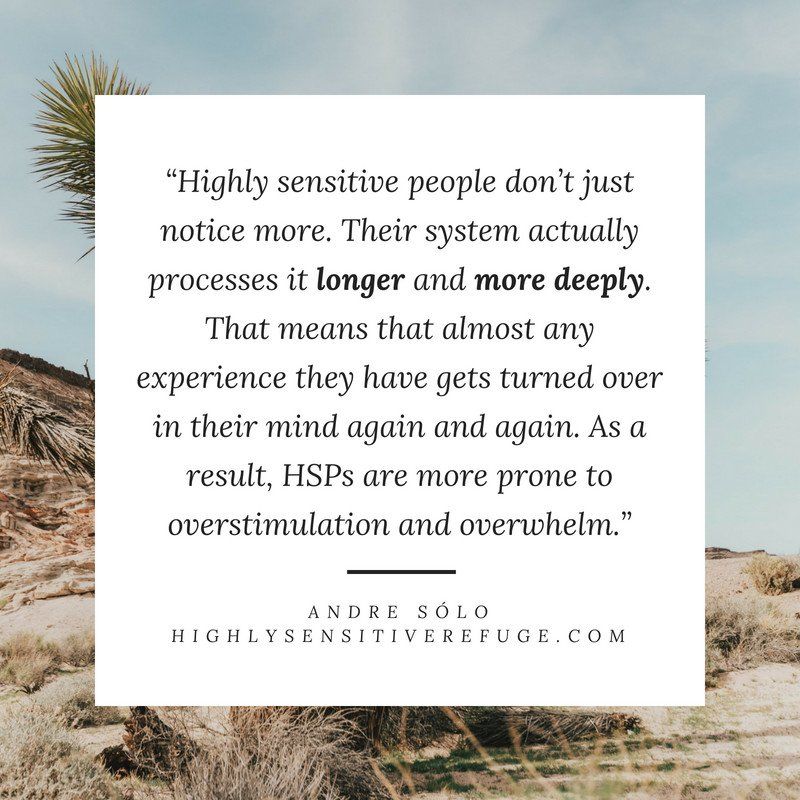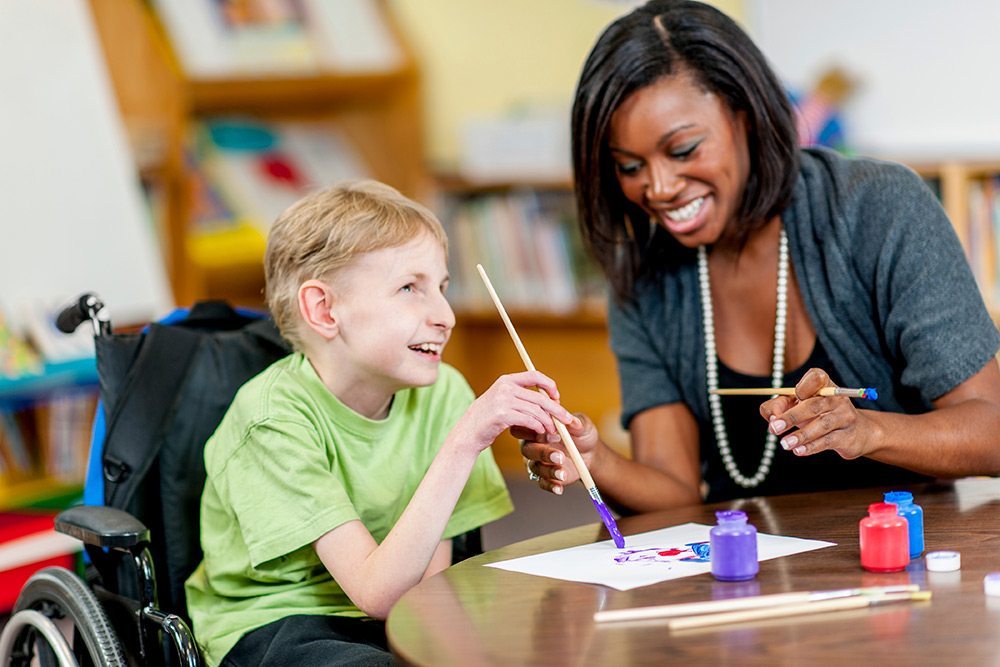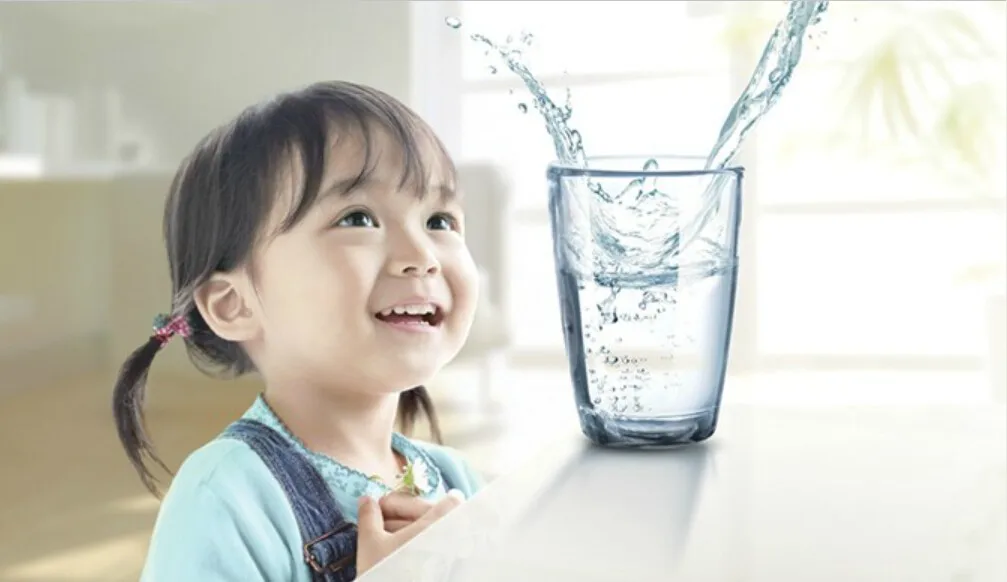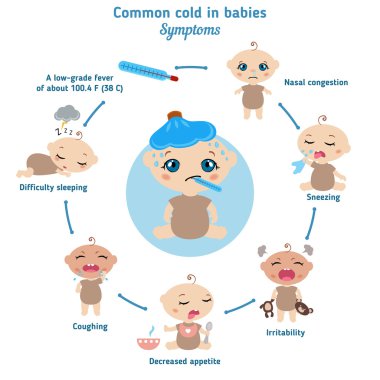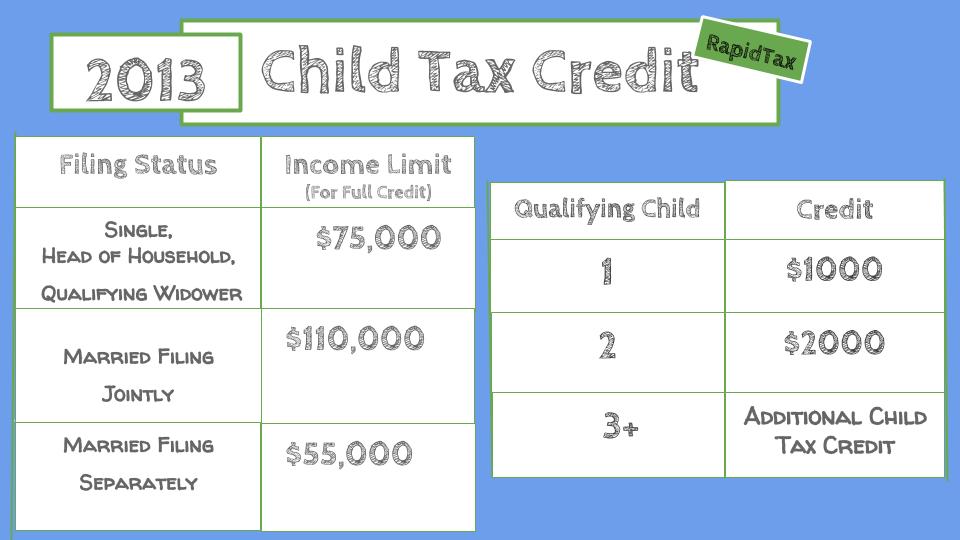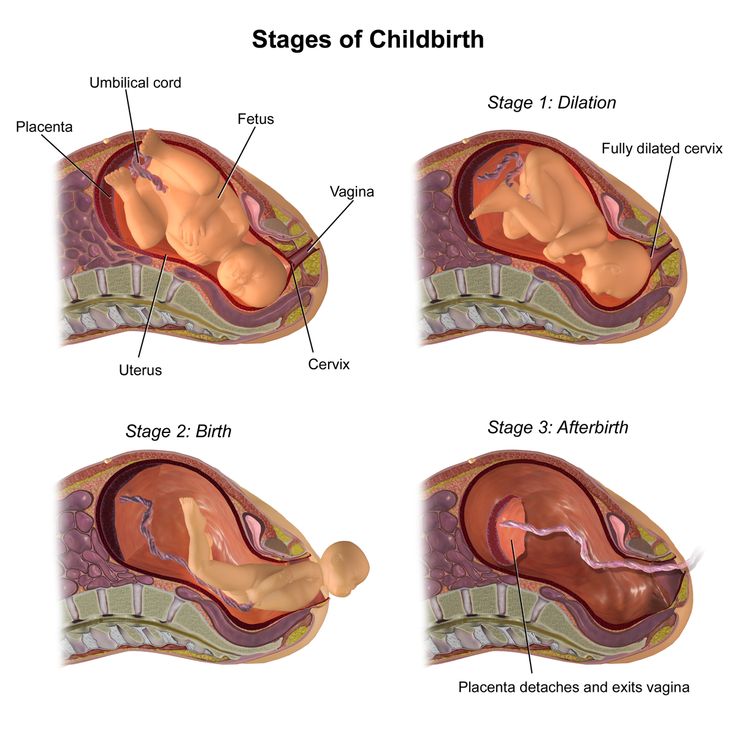Symptoms of the flu in newborns
Influenza (flu) and your baby
The flu can be dangerous for all babies, even healthy babies.
Babies 6 months and older need a flu vaccine every year. It helps protect children from serious health problems.
Parents, other family members and caregivers need a flu vaccine every year to help protect babies who are too young to get the vaccine.
Flu signs and symptoms include body aches, chills, cough, fatigue, fever, headache, runny or stuffy nose, sore throat, vomiting and diarrhea.
If you think your baby has the flu, call her provider right away. Quick treatment can help prevent serious flu complications.
What is the flu?
Influenza (also called flu) is a virus that can cause serious illness. It’s more than just a runny nose and sore throat. It’s really important to protect babies and young children from the flu because it can make them very sick. In rare cases, flu can cause death. In 2017, the flu caused a record number of deaths in children. Most of the children who died didn’t get a flu vaccine.
How does the flu spread?
The flu spreads easily from person to person. When someone with the flu coughs, sneezes or speaks, the virus spreads through the air. Your baby can get infected with the flu if she breathes the virus in or if she touches something (like a toy) that has the flu virus on it and then touches her nose, eyes or mouth.
People with the flu may be able to infect others from 1 day before they get sick up to 5 to 7 days after. People who are very sick with the flu or young children may be able to spread the flu longer, especially if they still have symptoms.
Does your child need a flu vaccine every year?
Yes. The Centers for Disease Control and Prevention (also called CDC) and the American Academy of Pediatrics (also called AAP) recommend that everyone 6 months and older get the flu vaccine each year. It’s especially important for children younger than 5 to get it because they’re more likely than older kids to have serious health problems caused by the flu. The flu can be dangerous for all children, even healthy children.
The flu can be dangerous for all children, even healthy children.
The best way to protect your child from the flu is to make sure he gets a flu vaccine each year before flu season (October through May). Even though your child’s more likely to get the flu during flu season, he can get it any time of year.
There are two ways for your child to get the flu vaccine:
- Flu shot. Children 6 months and older can get the flu shot.
- Flu nasal spray. This is a spray your child’s provider puts in your child’s nose. Most children 2 years or older can get the flu nasal spray. But it’s not recommended for children who have certain health conditions, like asthma, heart and lung problems, or a weak immune system that doesn’t protect him well from infection. The flu nasal spray also isn’t recommended for children who take certain medicines for a long time, like aspirin (called long-term aspirin therapy).

The first time your baby gets the flu vaccine, he gets two doses to give him the best protection from the flu. Your child gets one dose of the vaccine every year after.
If you’re not sure which vaccine is best for your child, ask his health care provider. Visit flu.gov to learn more about flu vaccines.
The flu vaccine is safe for most children, even babies born prematurely (before 37 weeks of pregnancy). But if your child had a bad reaction to the flu vaccine in the past, tell his provider. The provider may want to watch your child closely after getting the vaccine to check for a reaction. If your child is allergic to eggs, talk to his provider to decide if it’s OK to get the flu vaccine. Some flu vaccines are made from eggs.
There are many different flu viruses, and they’re always changing. Each year a new flu vaccine is made to protect against three or four flu viruses that are likely to make people sick during the upcoming flu season. With the vaccine, protection from the flu lasts about a year, so it’s important to get your child vaccinated each year.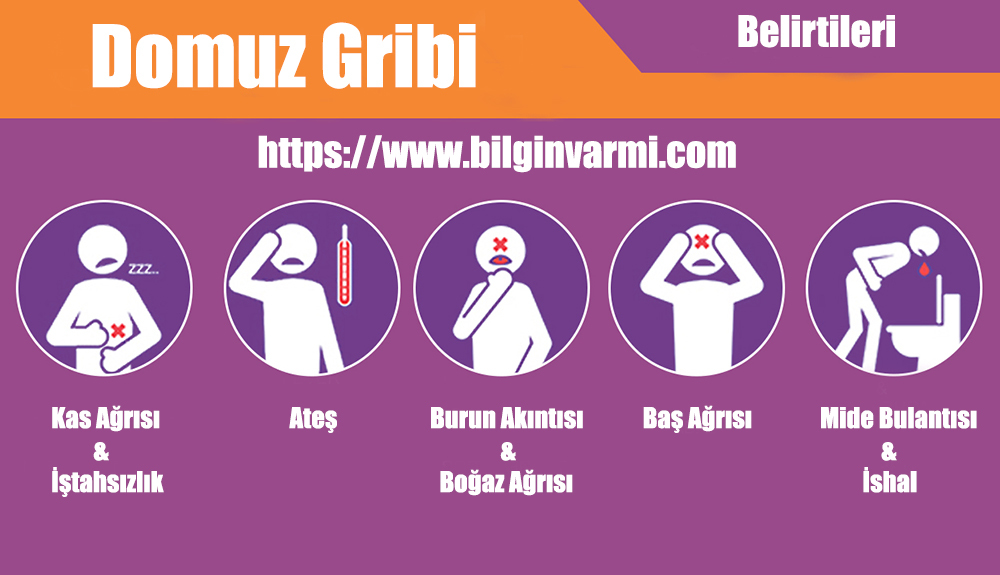 You get the vaccine from his provider or from other places, like pharmacies, that offer it. Use the HealthMap Vaccine Finder to find out where you can get a flu vaccine for your child.
You get the vaccine from his provider or from other places, like pharmacies, that offer it. Use the HealthMap Vaccine Finder to find out where you can get a flu vaccine for your child.
Are some children more likely to have serious health problems caused by flu than others?
Yes. Babies and children younger than 5 years old—and especially those younger than 2 years old-- are more likely than older children to have complications from the flu. Premature babies also are at increased risk of serious complications from flu. The CDC recommends that premature babies get most vaccines, including the flu vaccine, according to their chronological age (the time since birth). Even if a baby is born small or with a low birthweight, she can get her vaccine at the same time as other babies who are the same age. If you have a premature baby, talk your baby’s provider to make sure your baby gets the flu vaccine on time. Children with chronic health conditions, like asthma, heart disease or blood disorders, also are at high risk of flu complications.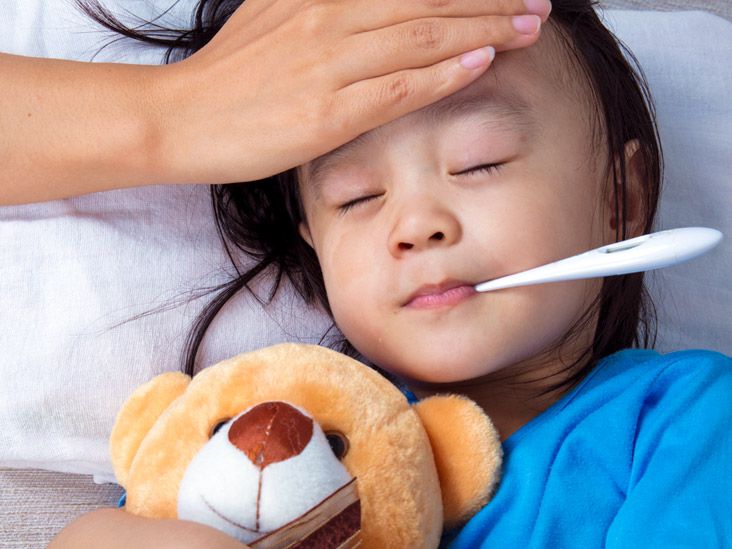
What health problems can flu cause in children?
Complications from flu in children younger than 5 years old include:
- Making chronic health conditions, like heart disease or asthma, worse
- Brain problems, like encephalopathy. Encephalopathy is any brain disease that affects the brain’s structure or how the brain works.
- Dehydration. This means not having enough water in your body.
- Pneumonia. This is an infection in one or both lungs.
- Sinus problems and ear infections. Sinuses are hollow air spaces within the bones around the nose. Sinus infections can happen when fluid builds up in the sinuses.
- Death. Flu complications can sometimes lead to death, but this is rare.
What are signs and symptoms that your baby has the flu?
Signs of a condition are things someone else can see or know about you, like you have a rash or you’re coughing. Symptoms are things you feel yourself that others can’t see, like having a sore throat or feeling dizzy.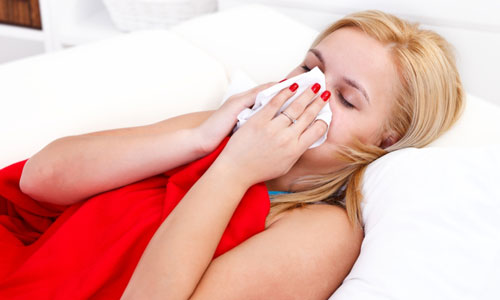 If your baby has any of these signs and symptoms of the flu, call his health care provider right away or take him to see his provider:
If your baby has any of these signs and symptoms of the flu, call his health care provider right away or take him to see his provider:
- Being very tired or sleepy (also called fatigue)
- Cough
- Fever (100 F or above), chills or body shakes. Not everyone who has the flu has a fever.
- Headache, or muscle or body aches
- Runny or stuffy nose
- Sore throat
- Vomiting (throwing up) or diarrhea
The flu often comes on quickly. Fever and most other signs and symptoms can last a week or longer. While your baby can’t tell you how she’s feeling, babies who have the flu often are sicker, fussier and seem more uncomfortable and unhappy than babies with a common cold. If you think your baby has the flu even if she got a flu vaccine, call her health care provider.
If your baby has any of these signs or symptoms, take her to a hospital emergency room:
- Being so fussy that she doesn’t want to be held
- Bluish color of lips or face
- Chronic health conditions, like asthma, get worse
- Fast breathing, trouble breathing, chest pain or ribs pulling in with each breath
- Fever in a baby younger than 12 weeks old, fever above 104 F in older babies or children, or fever with a rash
- Fever or cough that gets better but then returns and gets worse
- Having seizures.
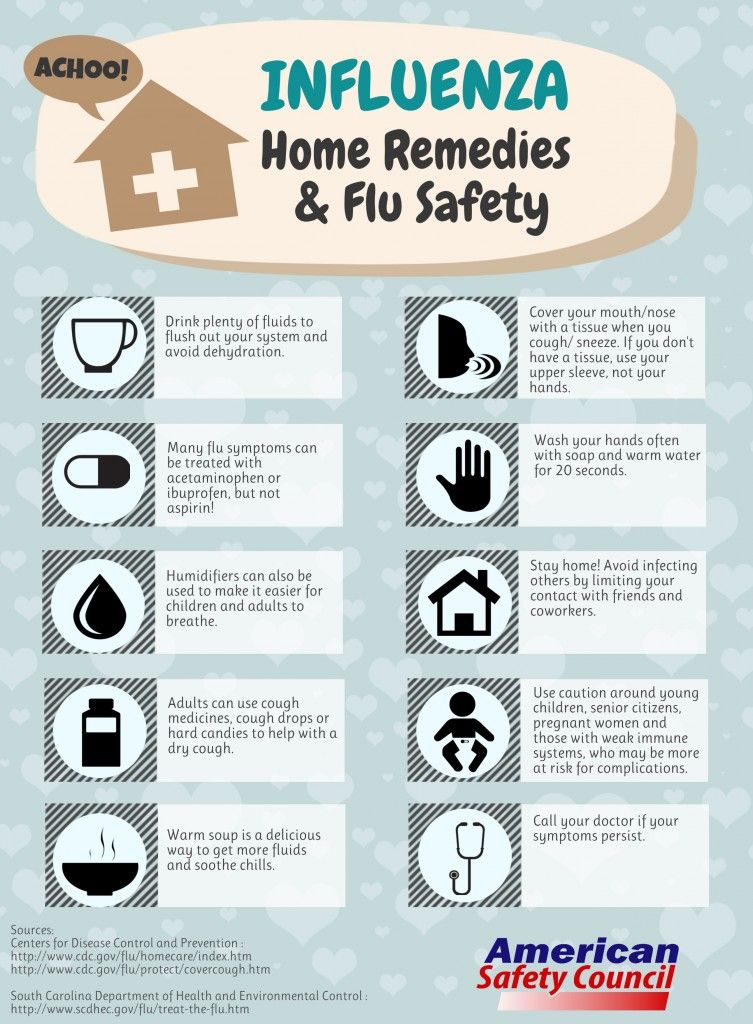 A seizure is when the whole body or parts of the body move without control.
A seizure is when the whole body or parts of the body move without control. - Not drinking enough fluids or not making as much urine as she normally does. If your baby doesn’t make urine for 8 hours, has a dry mouth or doesn’t make tears when crying, she may be dehydrated.
- Not waking up, or not being alert or interacting with you when she is awake
- Severe muscle pain. It may be so severe your child can’t walk.
- Vomiting (throwing up) that’s severe or doesn’t stop
How is flu treated in babies and children?
Your baby’s provider may prescribe an antiviral medicine to prevent or treat the flu. An antiviral is a medicine that kills infections caused by viruses. Antivirals can make your baby’s flu milder and help your baby feel better faster. Antivirals also can help prevent serious flu complications, like a lung infection called pneumonia. For flu, antivirals work best if used within 2 days of having signs or symptoms.
If your baby is at high risk for flu, his provider may prescribe an antiviral as soon as he begins to have flu symptoms.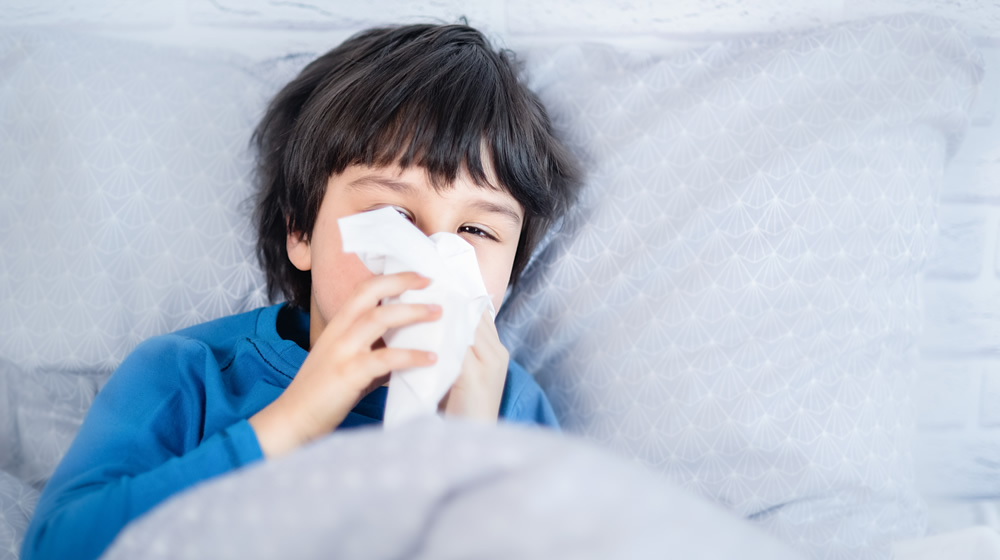 All children younger than 5 are at high risk for flu, especially children younger than 2. Children who were born prematurely or who have chronic health conditions, like asthma or sickle cell disease, also are at high risk.
All children younger than 5 are at high risk for flu, especially children younger than 2. Children who were born prematurely or who have chronic health conditions, like asthma or sickle cell disease, also are at high risk.
Three medicines are approved in the United States for preventing or treating the flu in children:
- Oseltamivir (Tamiflu®) for children as young as 2 weeks. This medicine comes as a capsule or liquid.
- Zanamivir (Relenza®) for children at least 5 years old. This medicine is a powder that your child breathes in by mouth. It isn’t recommended for people with breathing problems, like asthma.
- Peramivir (Rapivab®) for children at least 2 years old. This medicine is given through a needle into a vein (also called IV) by a health care provider.
If your child has the flu, help him get lots of rest and drink plenty of fluids. He may not want to eat much. Try giving him small meals to help his body get better.
If your baby seems uncomfortable from a fever, ask her provider if you can give her infant’s or children’s acetaminophen (Tylenol®) or ibuprofen (Motrin® or Advil®).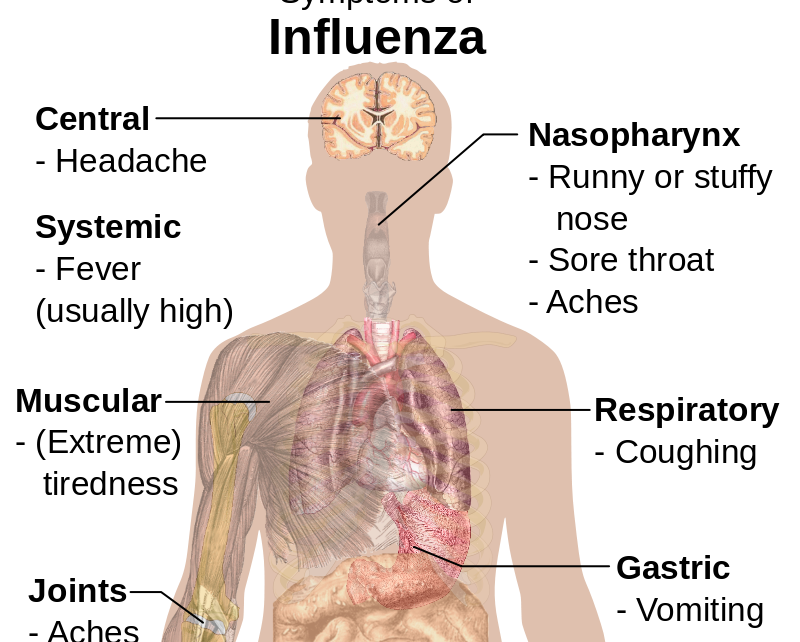 Don’t give her aspirin without checking with her health care provider. Aspirin can cause a rare but life-threatening liver disorder called Reye syndrome in children with certain illnesses, such as colds, the flu and chickenpox.
Don’t give her aspirin without checking with her health care provider. Aspirin can cause a rare but life-threatening liver disorder called Reye syndrome in children with certain illnesses, such as colds, the flu and chickenpox.
If your baby has a cough or a cold, don’t give her over-the-counter cough and cold medicine. These are medicines you can buy without a prescription from a health care provider. AAP says these medicines can cause serious health problems for children. Talk to your baby’s provider before you give your baby any kind of medicine.
How can you stop the flu from spreading?
Everyone 6 months and older needs to get a flu vaccine. This means you, especially if you have or take care of a baby younger than 6 months. Getting a flu vaccine can help keep you from spreading the flu.
If you or your child has the flu, you can spread it to others. Here’s how to help prevent the flu from spreading:
- Keep your child home from day care, school or camp for at least 24 hours after her fever (100 F or higher) is gone.
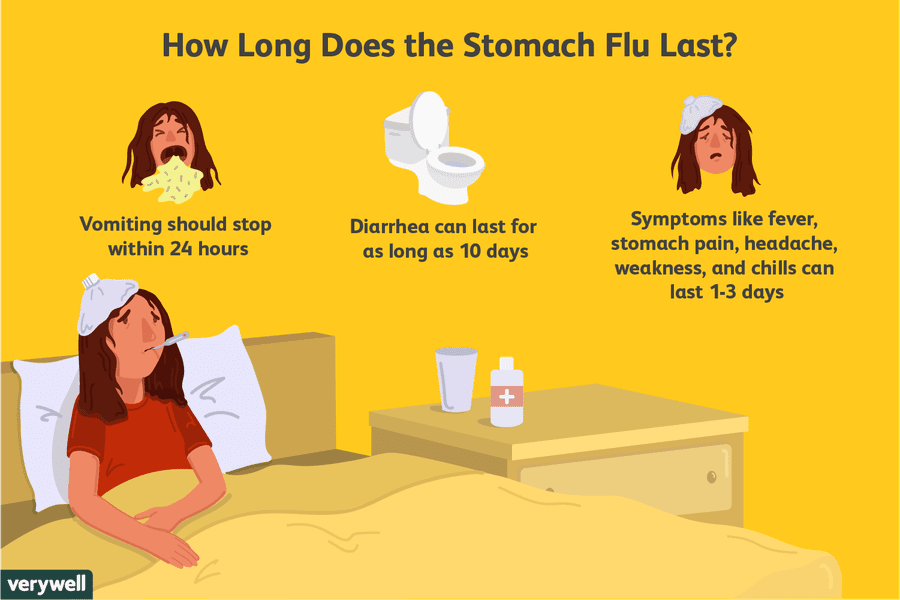 The fever should be gone without using a medicine that lowers fever.
The fever should be gone without using a medicine that lowers fever. - Avoid contact with other people.
- Don’t kiss your baby and avoid touching your eyes, nose and mouth.
- Teach your child to cough or sneeze into a tissue or his arm. Throw used tissues in the trash.
- Wash your hands with soap and water before and after caring for your baby. You also can use alcohol-based hand sanitizers. Use enough hand sanitizer so that it takes at least 15 seconds for your hands to dry.
- Clean surfaces and toys that may have the flu virus on them.
- Use hot, soapy water or a dishwasher to clean your baby’s dishes and utensils.
- Don’t share any of your baby’s dishes, glasses, utensils or his toothbrush.
More information
Flu.gov
Last reviewed: September, 2019
See also: Flu and pregnancy, Your baby’s vaccinations
Your baby and the flu: MedlinePlus Medical Encyclopedia
The flu is an easily-spread disease.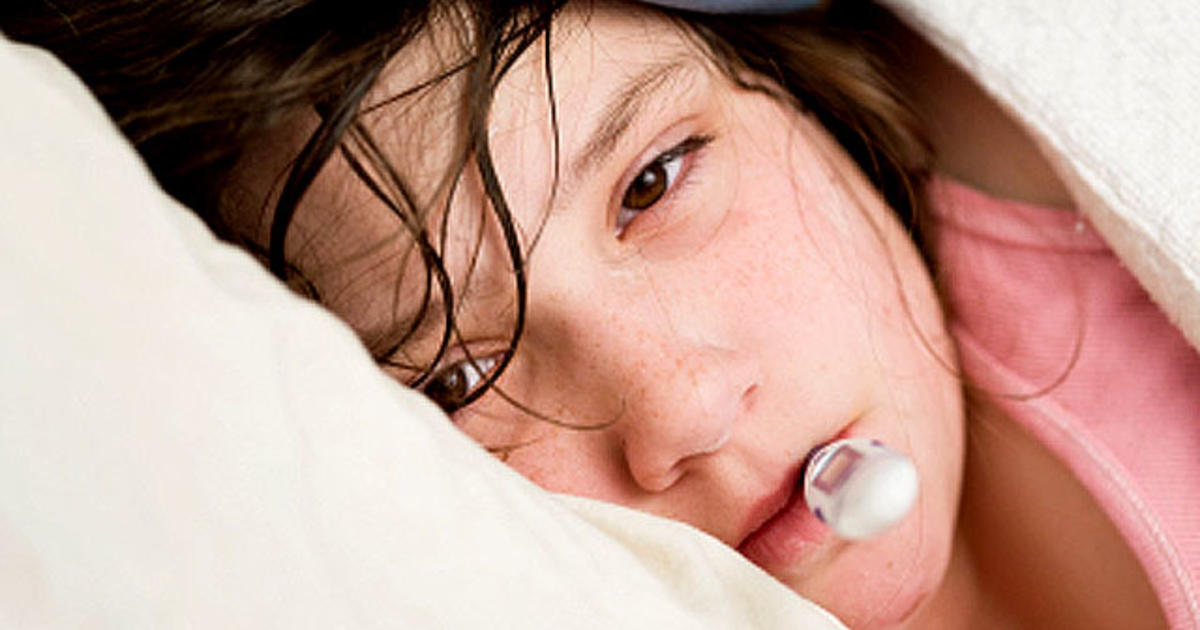 Children under age 2 have a higher risk of developing complications if they get the flu.
Children under age 2 have a higher risk of developing complications if they get the flu.
The information in this article has been put together to help you protect children under age 2 from the flu. This is not a substitute for medical advice from your health care provider. If you think your baby may have the flu, you should contact a provider right away.
FLU SYMPTOMS IN INFANTS AND TODDLERS
The flu is an infection of the nose, throat, and (sometimes) lungs. Call your baby's provider if you notice any of the following signs:
- Acting tired and cranky much of the time and not feeding well
- Cough
- Diarrhea and vomiting
- Has a fever or feels feverish (if no thermometer available)
- Runny nose
- Body aches and general ill feeling
HOW IS THE FLU TREATED IN BABIES?
Children younger than 2 years old will often need to be treated with medicine that fights off the flu virus. This is called antiviral medicine. The medicine works best if started within 48 hours after symptoms begin, if possible.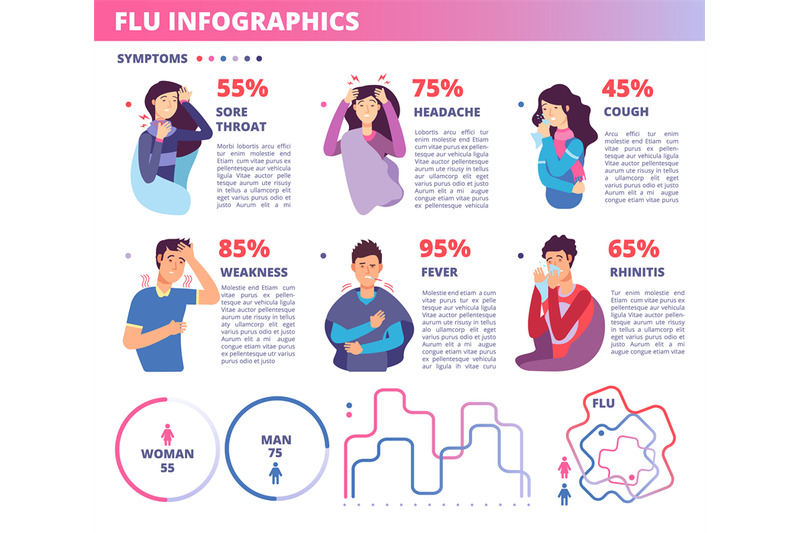
Oseltamivir (Tamiflu) in liquid form will likely be used. After talking about the risk of side effects against the possible complications of the flu in your baby, you and your provider may decide to use this medicine to treat the flu.
Acetaminophen (Tylenol) and ibuprofen (Advil, Motrin) help lower fever in children. Sometimes, your provider will tell you to use both types of medicine.
Always check with your provider before giving any cold medicines to your infant or toddler.
SHOULD MY BABY GET THE FLU VACCINE?
All infants 6 months or older should get the flu vaccine, even if they have had a flu-like illness. The flu vaccine is not approved for children under 6 months old.
- Your child will need a second flu vaccine around 4 weeks after receiving the vaccine for the first time.
- There are two types of flu vaccine. One is given as a shot, and the other is sprayed into your child's nose.
The flu shot contains killed (inactive) viruses. It is not possible to get the flu from this type of vaccine. The flu shot is approved for people age 6 months and older.
It is not possible to get the flu from this type of vaccine. The flu shot is approved for people age 6 months and older.
A nasal spray-type flu vaccine uses a live, weakened virus instead of a dead one like the flu shot. It is approved for healthy children over 2 years.
Anyone who lives with or has close contact with a child younger than 6 months old should also have a flu shot.
WILL THE VACCINE HARM MY BABY?
You or your baby cannot get the flu from either vaccine. Some children may get a low-grade fever for a day or two after the shot. If more severe symptoms develop or they last for more than 2 days, you should call your provider.
Some parents are afraid the vaccine could hurt their baby. But children under 2 years of age are more likely to get a severe case of the flu. It is hard to predict how ill your child may get from flu because children often have a mild illness at first. They may become sick very fast.
A small amount of mercury (called thimerosal) is a common preservative in multidose vaccines.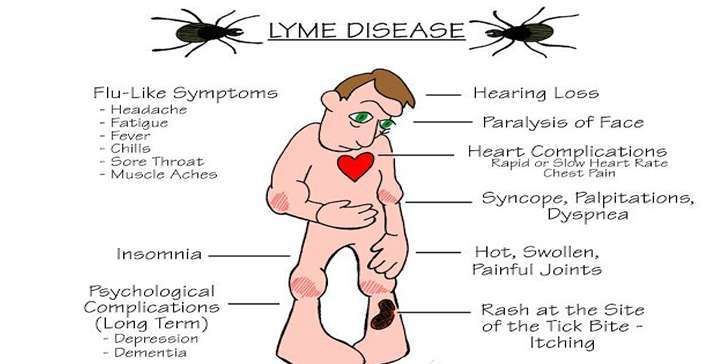 Despite concerns, thimerosal-containing vaccines have not been shown to cause autism, ADHD, or any other medical problems.
Despite concerns, thimerosal-containing vaccines have not been shown to cause autism, ADHD, or any other medical problems.
However, all of the routine vaccines are also available without added thimerosal. Ask your provider if they offer this type of vaccine.
HOW CAN I PREVENT MY BABY FROM GETTING THE FLU?
Anyone who has flu symptoms should not care for a newborn or infant, including feeding. If a person with symptoms must care for the child, the caretaker should use a face mask and wash their hands well. Everyone who comes in close contact with your baby should do the following:
- Cover your nose and mouth with a tissue when you cough or sneeze. Throw the tissue away after using it.
- Wash your hands often with soap and water for 15 to 20 seconds, especially after you cough or sneeze. You may also use alcohol-based hand cleaners.
If your baby is younger than 6 months old and has close contact with someone with the flu, inform your provider.
IF I HAVE FLU SYMPTOMS, CAN I BREASTFEED MY BABY?
If a mother is not ill with the flu, breastfeeding is encouraged.
If you are sick, you may need to express your milk for use in bottle feedings given by a healthy person. It is unlikely a newborn can catch flu from drinking your breast milk when you are sick. Breast milk is considered safe if you are taking antivirals.
WHEN SHOULD I CALL THE DOCTOR?
Talk to your child's provider or go to the emergency room if:
- Your child does not act alert or more comfortable when the fever goes down.
- Fever and flu symptoms come back after they have gone away.
- The child does not have tears when crying.
- The child's diapers are not wet, or the child has not urinated for the last 8 hours.
- Your child is having trouble breathing.
Colds in newborns - signs, prevention and treatment
A newborn due to unformed immunity is very susceptible to various kinds of viruses. To protect the baby from ARI, parents need to follow a number of simple but important rules.
To protect the baby from ARI, parents need to follow a number of simple but important rules.
Dry initial milk formula adapted by Valio Baby 1 NutriValio for feeding children from birth to 6 months More
Follow-up dry milk formula adapted by Valio Baby 2 NutriValio for feeding children from 6 to 12 months Read more
Dry milk drink "Baby milk" Valio Baby 3 NutriValio for feeding children over 12 months Read more
Most often, the baby gets sick when one of the parents or other adults in the house catches a cold. First of all, you need to take measures so that the child does not catch a virus that is dangerous for him. In children under 1 year old, even the simplest cold can lead to rather serious complications.
How not to infect a child with a cold?
-
If possible, move the sick family member to a separate room. The patient needs to move around the apartment only in a medical mask.
-
The baby should sleep in the nursery or at least in a separate bed. Do not take an infant to an adult bed, even if you practice co-sleeping.
-
Ventilate the room more often. At least twice a day, no less than 10 minutes. Take the child to another room, but rather go for a walk with him in the fresh air.
-
Every day (and preferably twice a day) spend in the apartment or at least the room where the baby spends most of the time, wet cleaning. You can use a weak dose of disinfectant detergent.
-
Try to adjust the air temperature in the apartment - the rooms should not be hot. This encourages the growth of microbes in the air.
Signs of a cold in a baby
A small child cannot explain that he is unwell, however, attentive parents, of course, will notice the symptoms of an incipient cold:
-
The baby has a fever.
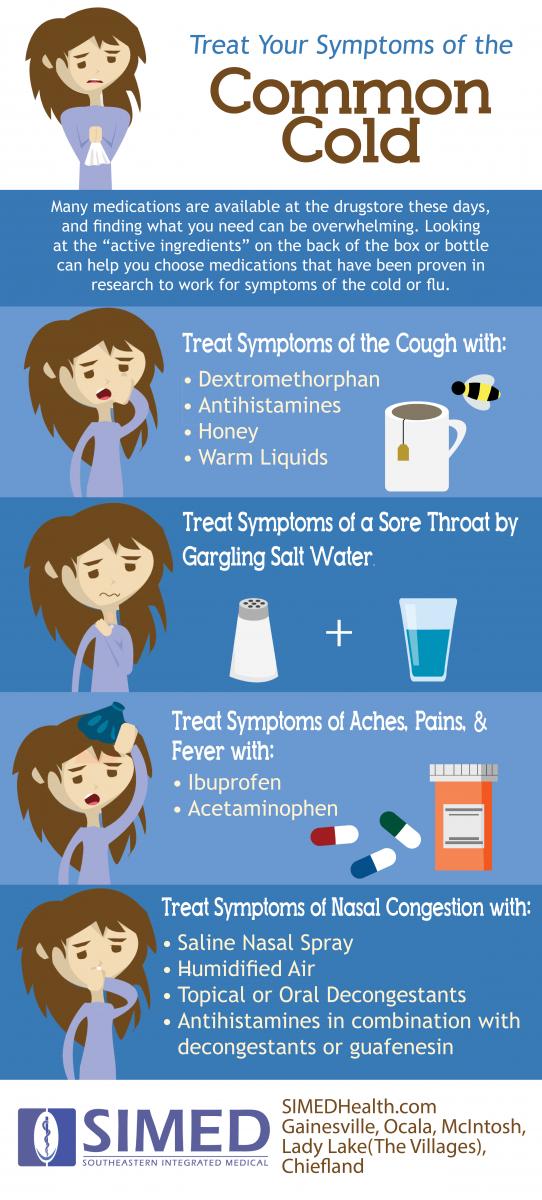
-
The baby becomes capricious, whiny, sleeps poorly, refuses to breast or bottle with a mixture.
-
The child has a runny nose, wheezing, coughing may appear.
- Quite often, ARVI and acute respiratory infections in crumbs are accompanied by stool disorder.
How to treat a cold in a baby?
It is impossible to treat newborns on their own in any case. With the symptoms listed above, be sure to call the doctor to the baby. Only he will professionally diagnose and prescribe treatment. Fulfilling his prescriptions, create favorable conditions for the recovery of the crumbs - do not wrap him up (this will only increase the fever) and let's drink more (especially if the baby's cold is accompanied by diarrhea). Do not force your baby to eat if he refuses milk or formula. However, offer him a breast or a bottle more often so that he eats at least a little. If the baby is already receiving complementary foods, suspend acquaintance with new foods during the illness.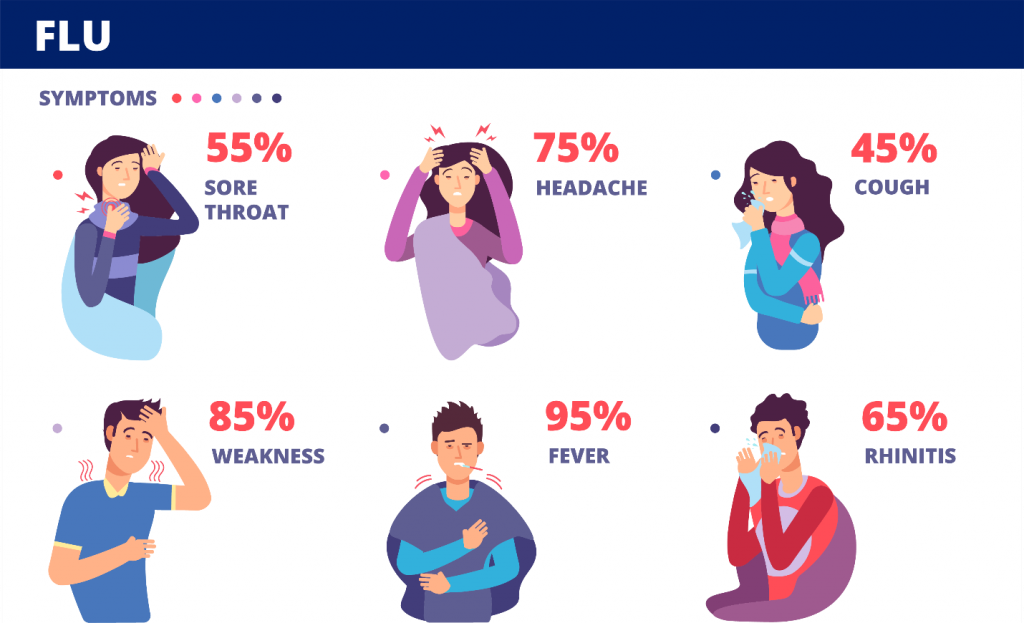
#PROMO_BLOCK#
Prevention of colds in the newborn
The disease, of course, is better to prevent than to cure. Therefore, parents should definitely take measures to prevent colds, especially during the epidemic season. Refrain from receiving guests and visiting public places with the baby. If a nursing mother is sick, it is far from always necessary to stop breastfeeding - after all, breast milk contains the necessary antibodies and helps strengthen the baby's immunity. In what cases it is still worth switching to a mixture, read in our article *.
To make the baby less susceptible to disease, temper it. Walk outdoors more often and practice baby sleep while walking. Do not bathe the baby in hot water (start water procedures at 33-34 ° C and make the water cooler so that the baby is in good shape in it). When changing your baby, leave him to lie down undressed, air baths are very useful for strengthening children's health.
3. 1916
1916
Share:
Author: Reetta Tikanmäki
Palm oil in baby food
Infant milk formulas are made from cow's milk. However, in terms of fat composition, it differs significantly from that of the mother.
Read
Author: Ivargizova Oksana
How to choose milk formula for a baby
Breast milk is the best food for a newborn baby.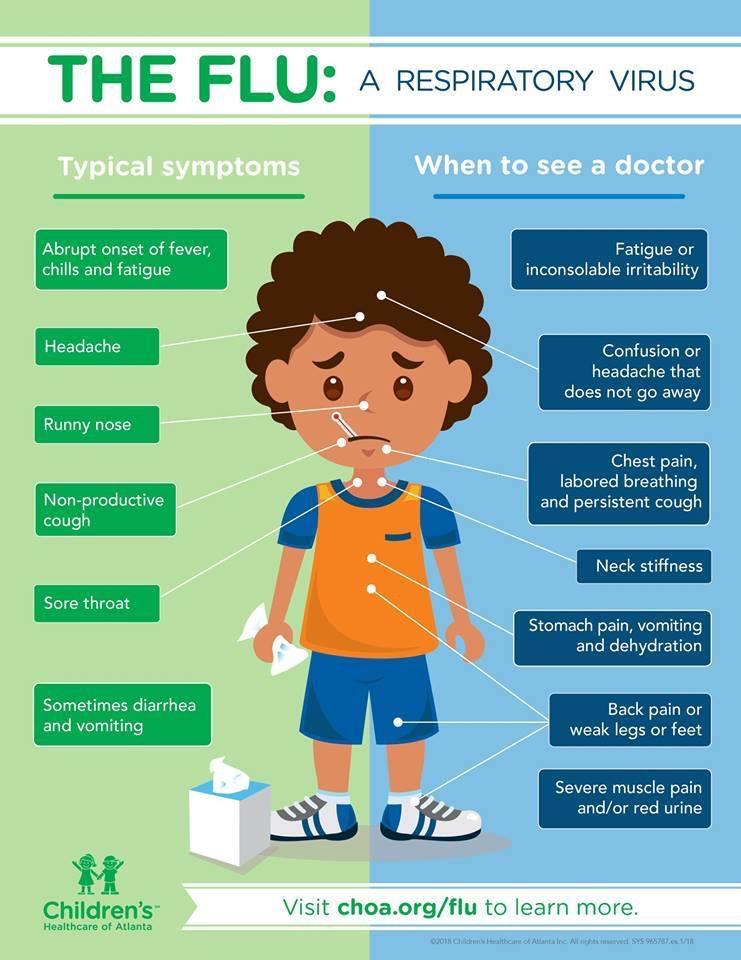 It contains all the necessary nutritional components that fully meet the needs of the child and are necessary for his healthy and harmonious development.
It contains all the necessary nutritional components that fully meet the needs of the child and are necessary for his healthy and harmonious development.
Read
Show all
symptoms, signs and treatment. How not to infect and how to protect a newborn baby from a cold?
Colds in babies under one year of age worry parents for a reason. At such an early age, when the work of natural defense mechanisms is still imperfect, even simple acute respiratory viral infections are difficult, and their consequences can be dangerous. In this article, we will tell you how to recognize a cold in time and how to treat it in order to help your baby recover faster and protect him from complications.
Causes of colds in infants
What we used to call a cold is actually an infectious disease - SARS. Its cause is viruses that infect the respiratory mucosa and cause inflammation, which is manifested by characteristic symptoms.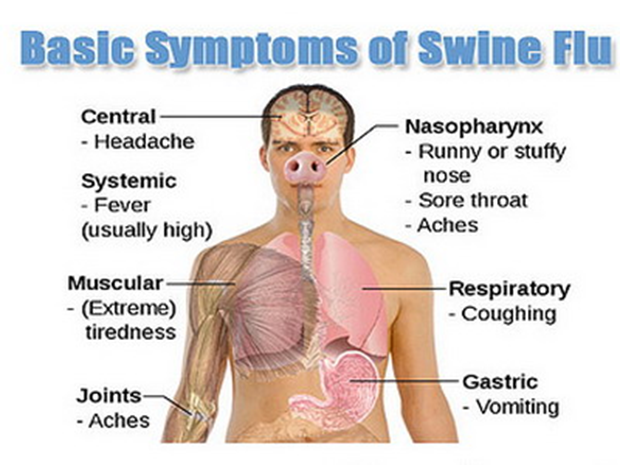 ARVI is called a cold due to the fact that most often the disease develops against the background of hypothermia. It weakens local and general immunity, and viruses freely attack the respiratory tract.
ARVI is called a cold due to the fact that most often the disease develops against the background of hypothermia. It weakens local and general immunity, and viruses freely attack the respiratory tract.
Note
There are more than 300 types of ARVI pathogens[1]. Among them are adenoviruses, rhinoviruses, influenza and parainfluenza viruses and others. It is usually impossible to determine exactly which of them caused the cold, so it is preferable to take drugs with a wide spectrum of antiviral action.
The disease is actively spread by airborne droplets: viruses enter the body by inhaling particles of infected saliva, which the patient releases into the environment when coughing and sneezing. You can also get infected by contact - through objects or a handshake (which is why doctors recommend washing your hands as often as possible during the epidemic season).
Everyone can get SARS, but a cold in a newborn is very rare. In the first three to six months, the baby's body is protected by antibodies received from the mother during fetal development. In addition, breastfeeding plays an important role in protecting the child from infections. Mother's milk contains protective factors that increase the resistance of the child's body. Formula-fed babies have a higher risk of getting sick.
In the first three to six months, the baby's body is protected by antibodies received from the mother during fetal development. In addition, breastfeeding plays an important role in protecting the child from infections. Mother's milk contains protective factors that increase the resistance of the child's body. Formula-fed babies have a higher risk of getting sick.
Be that as it may, within six months there is a decrease in the stock of maternal antibodies, and its own immunity has not yet been formed during this time, so a cold in the baby is quite likely. Another thing is that infants, unlike preschool children, are less likely to encounter sources of infection. Thinking about how to protect the baby from a cold, responsible parents try to minimize his contacts with others, avoid traveling with the baby in public transport, visiting shops and other places with a large crowd of people with him.
However, the risk cannot be completely eliminated, even if all precautions are taken.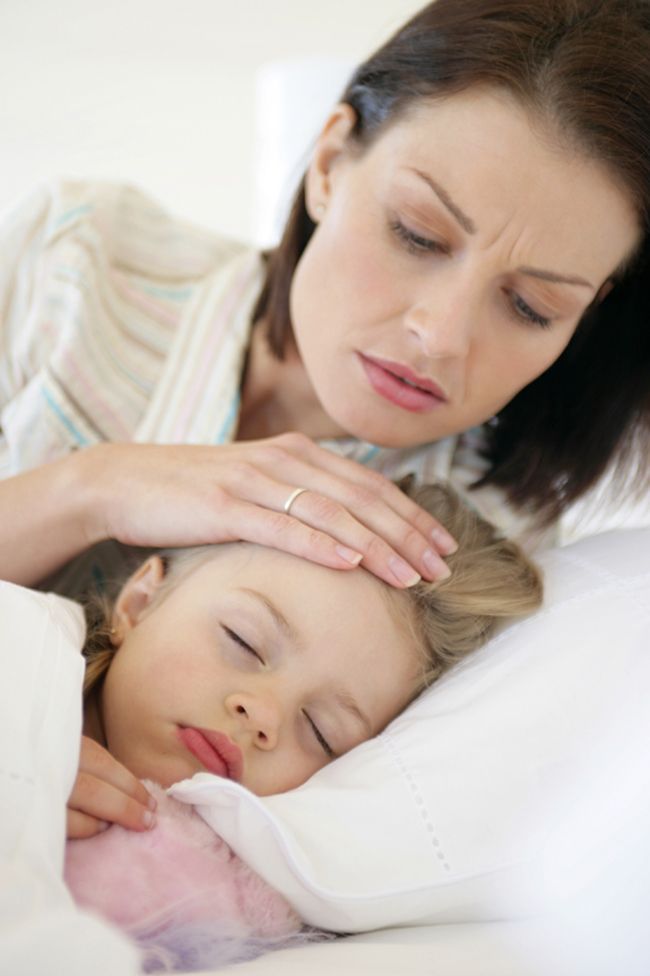 A baby can get SARS from relatives. The most common situation is when the father or older children "bring" a cold home. Weak immunity of the baby poorly resists the attack of viruses, and the disease develops rapidly.
A baby can get SARS from relatives. The most common situation is when the father or older children "bring" a cold home. Weak immunity of the baby poorly resists the attack of viruses, and the disease develops rapidly.
Everyone knows how a cold behaves. Fever, weakness, sore throat, cough and runny nose are familiar to everyone. The problem is that by external signs, parents are not always able to determine that the baby has a cold. The situation is aggravated by the fact that the baby is not yet able to talk about his well-being. Meanwhile, it is necessary to identify a cold as early as possible: delay or improper treatment threatens the development of complications, which at this age pose a great danger to a fragile body. What are the symptoms of a cold?
Some reflexes in children of the first year of life are not yet formed. So, babies do not know how to blow their nose and cough. Because of this, mucus is not removed on time, but accumulates in the respiratory tract and serves as a breeding ground for bacteria. Therefore, against the background of a cold, a baby can also get otitis media, bronchitis, and pneumonia.
Therefore, against the background of a cold, a baby can also get otitis media, bronchitis, and pneumonia.
Nasal congestion can manifest itself as follows: the child breathes with an open mouth and has difficulty in taking milk. He throws the breast (or bottle) even when he is hungry, refuses the pacifier.
Fever is another characteristic symptom of ARVI, which is also not always the case in infants. Most often, the temperature in infants with a cold still rises, but only slightly.
Attentive parents notice changes in the general condition and behavior of the baby. The child becomes lethargic or, on the contrary, restless, often cries for a long time, while it is difficult to calm him down. Day and night sleep is disturbed: the baby constantly wakes up or sleeps too much, while before this was uncharacteristic for him.
When a baby has a cold, appetite worsens. This is due to difficulty breathing through the nose and general intoxication. Abundant regurgitation and vomiting are possible.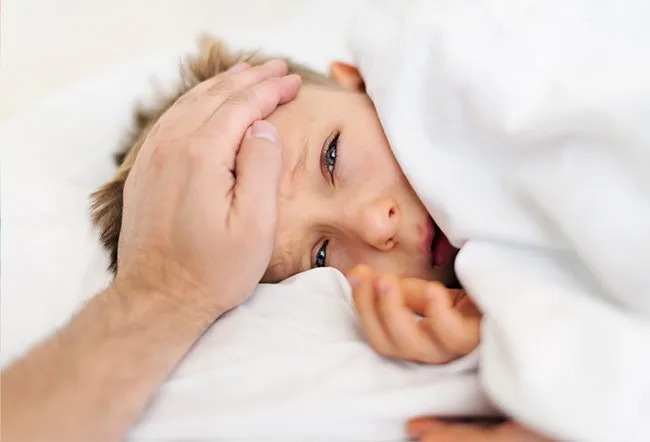 Malnutrition and dehydration (fluid loss due to fever) exacerbate the severity of the child's condition.
Malnutrition and dehydration (fluid loss due to fever) exacerbate the severity of the child's condition.
A few days after the onset of the disease, the clinical picture is no longer in doubt. But during this period, if the treatment was not started in a timely manner, bacterial complications may also join the indicated symptoms. Therefore, parents should carefully monitor the condition of the child and pay attention to any, even minor, deviations from the norm.
Rare in infants during the first year of life
Runny nose
May have nasal discharge, repeated sneezing; The child tries to breathe with the mouth of
Violation of appetite
The baby refuses the chest or nipple
Sleep disorder
The child is more difficult to fall asleep, or more often rummages, or the same than usual
Changes in the behavior
The baby looks apathetic and sluggish or it seems excessively capricious and restless - any uncharacteristic behavior should alert
Possible therapy for the Promotion of the Prosecutor's Prosit care.
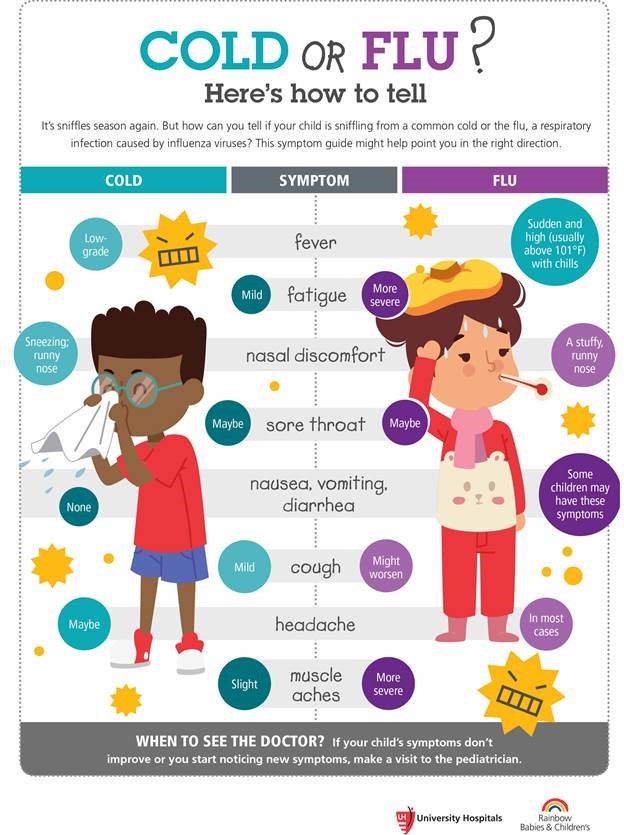 First of all, it is necessary to provide suitable conditions in the room. Viruses “love” dry, stale air, so ventilate the apartment as often as possible and use a humidifier if possible. If it is cold outside, take the baby to another room while airing. In warm weather, you can walk - provided that the child has a normal temperature.
First of all, it is necessary to provide suitable conditions in the room. Viruses “love” dry, stale air, so ventilate the apartment as often as possible and use a humidifier if possible. If it is cold outside, take the baby to another room while airing. In warm weather, you can walk - provided that the child has a normal temperature. Dress your baby in a comfortable way. Hypothermia should be avoided, but overheating is unacceptable, especially at high temperatures.
Pediatricians have specific recommendations regarding feeding. Mother's milk is the best cold medicine for babies: it contains immunoglobulins and has protective properties. But the appetite of a sick baby is often reduced, and in no case should you force-feed him. It is better to put the baby to the breast more often, but not for long.
Please note
When a baby has a cold, it is very important that he drink enough fluids. Between feedings, offer your baby water, rosehip broth or dried fruit compote without sugar.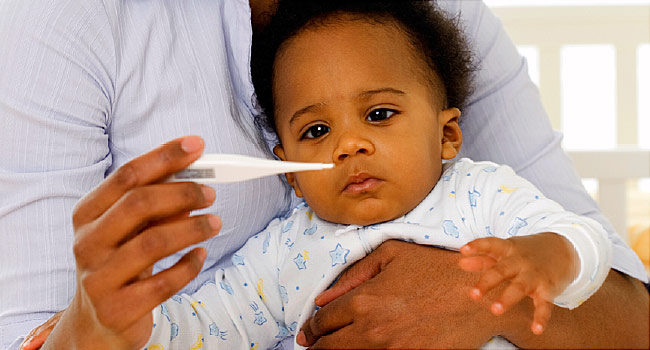
If you have a runny nose, doctors advise you to wash your child's nose with saline solutions. In any pharmacy you can buy preparations based on sea water. They gently cleanse and moisturize the nasal mucosa.
Antiviral therapy
All of the above measures help the baby's body fight the disease, but to eliminate the main cause of a cold, it is recommended to resort to specific antiviral therapy. It is effective at the very beginning - preferably on the first day of the disease.
The difficulty is that there are very few antiviral drugs that can be given to children from birth. In fact, all possible approaches to the treatment of colds in infants come down to the appointment of two groups of drugs. These are ready-made interferon preparations or homeopathic remedies. The latter are also adjacent to the so-called release-active drugs. The rest of the cold remedies for infants are contraindicated: they are prescribed for older children (at least from a year old).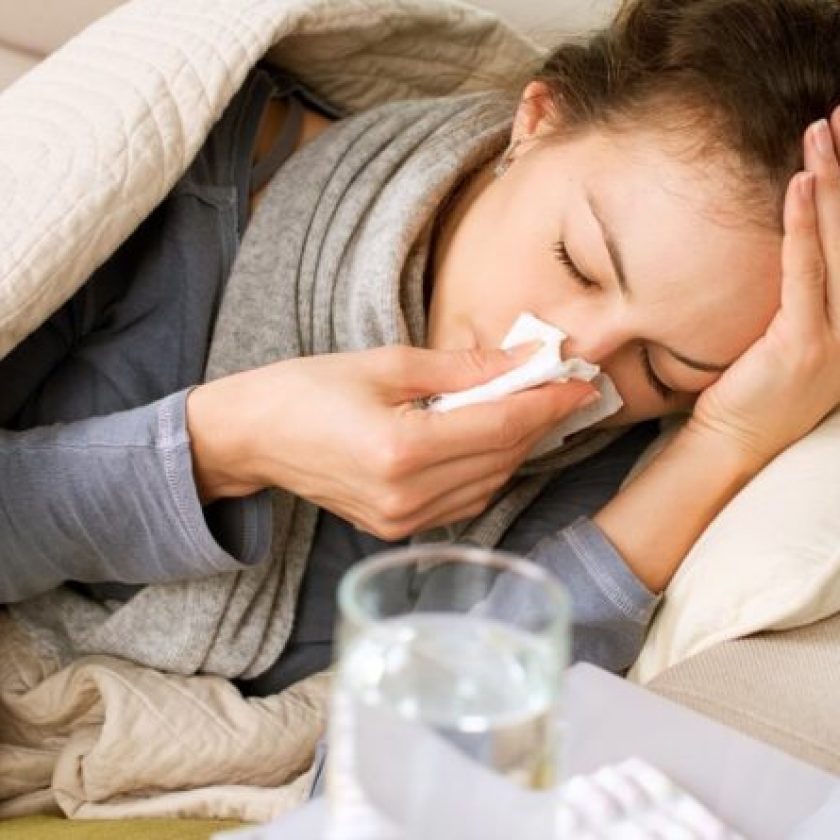
Interferon preparations
Interferon is a protein produced by body cells in response to the entry of foreign agents. It has a wide spectrum of action against various types of pathogens of SARS (and not only). Interferon inhibits the growth and reproduction of viruses, and also activates other immune factors.
Taking these properties of a protective protein as a basis, scientists created ready-made interferon preparations and agents that stimulate its production by body cells. Both those and others are widely used today in the treatment of influenza and SARS. But the so-called interferon inducers are not prescribed for infants. First, they are immunostimulants and can unpredictably affect the functioning of the immune system. Secondly, in babies under one year old, the process of producing their own interferon (including under the influence of stimulants) has not yet been established, and the protective protein is not produced in the right amount. Therefore, pediatricians prescribe ready-made interferon preparations for infants with a cold.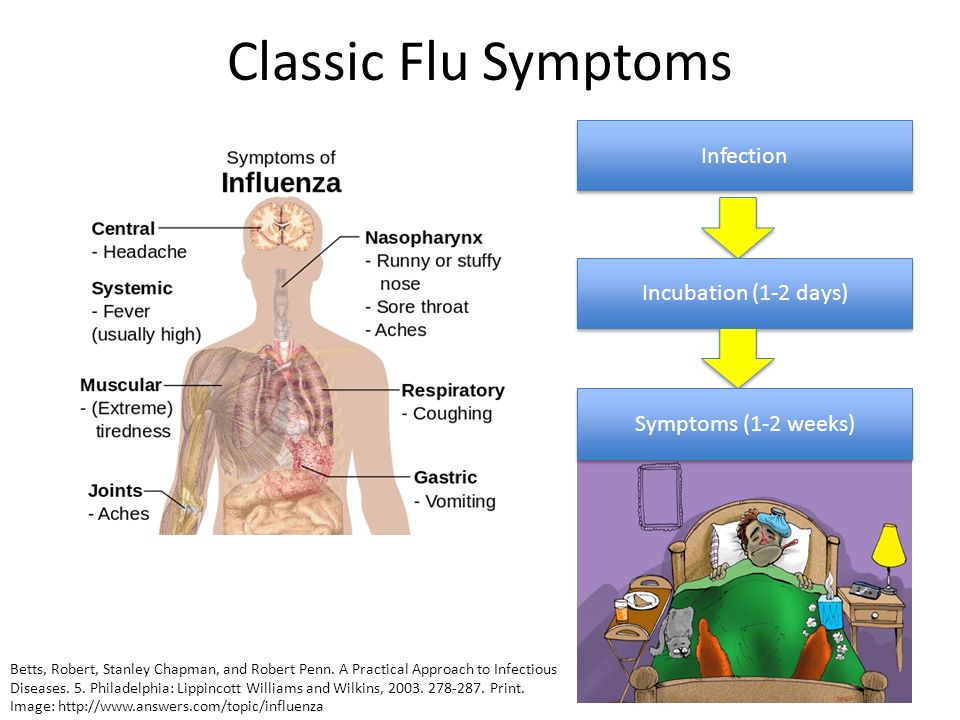 They begin to fight viruses immediately after application. Such funds are produced in different dosage forms.
They begin to fight viruses immediately after application. Such funds are produced in different dosage forms.
Nasal drops, ointments and sprays fight viruses in the lesion - in the nasal mucosa. The degree of their overall impact on the baby's body is minimal.
- "Genferon® light" (LP-002309) [2]. in the form of drops contains recombinant interferon alpha-2b and taurine. It can be used for children from 28 days. "Genferon® light" (LSR-009046/10)[3]. in the form of a spray contains 50,000 IU of interferon alfa-2b in one dose, approved for use from 14 years of age.
- Grippferon® (P N000089/01)[4]. in the form of drops contains recombinant (artificial) interferon alpha-2b. It can be used for children from birth. The recommended dosage is one drop in each nasal passage five times a day for five days.
- Viferon® (P N001142/02) [5]. in the form of a gel is also a preparation of interferon alfa-2b. Its use is permissible from the first days of life.
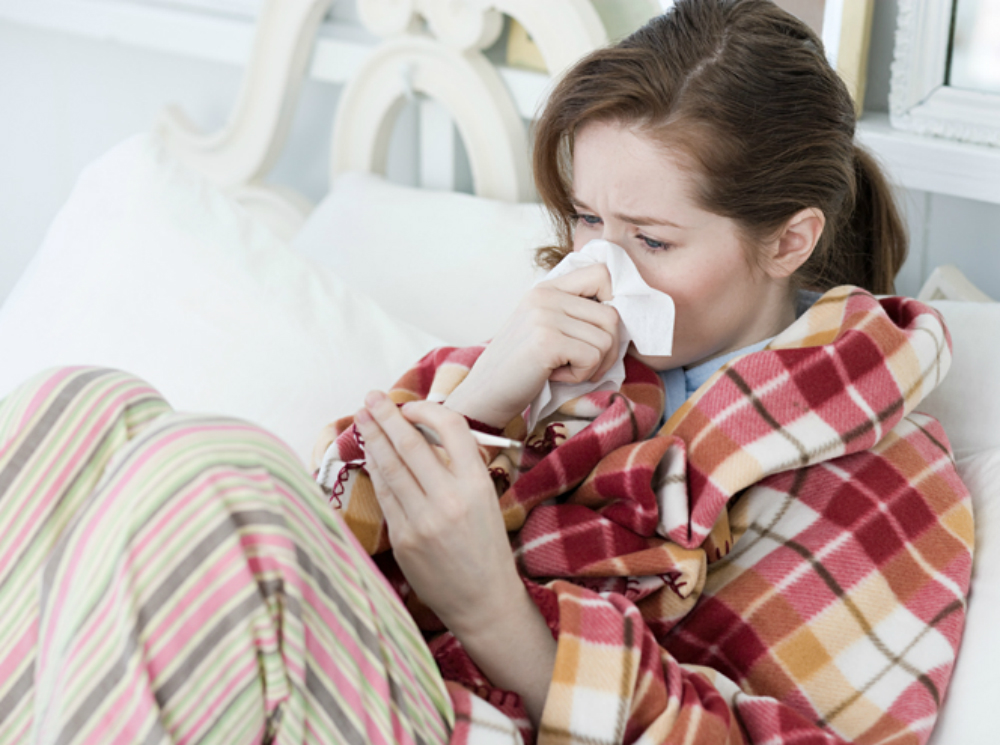 The agent is applied to the nasal mucosa from three to five times a day for five days.
The agent is applied to the nasal mucosa from three to five times a day for five days.
Preparations of finished interferon for children are also available in the form of suppositories. This form has many advantages. Firstly, the drops are effective at the earliest stage of a cold, while the viruses are on the nasal mucosa, and the disease manifests itself only through a runny nose. When the symptoms are more pronounced (which means that the viruses have penetrated deeper), a rapid entry of interferon into the blood is required, which becomes possible with rectal administration of the drug. Secondly, nasal remedies require too frequent use. Candles are administered rectally twice a day. The active substance has a systemic antiviral effect, without affecting the gastrointestinal tract. And finally, suppositories are easy to use in infants: there is always a risk that the baby will spit out or burp the medicine in the form of a tablet, pill, syrup, and so on.
In Russia, three preparations of interferon in the form of suppositories are registered, approved for use in children from the first day of life:
- Genferon® light "(LSR-005614/09) [6] - 125,000 IU;
- Viferon® (P N000017/01) [7] - 150,000 IU;
- Kipferon® (P N000126/01)[8] - 500,000 IU.
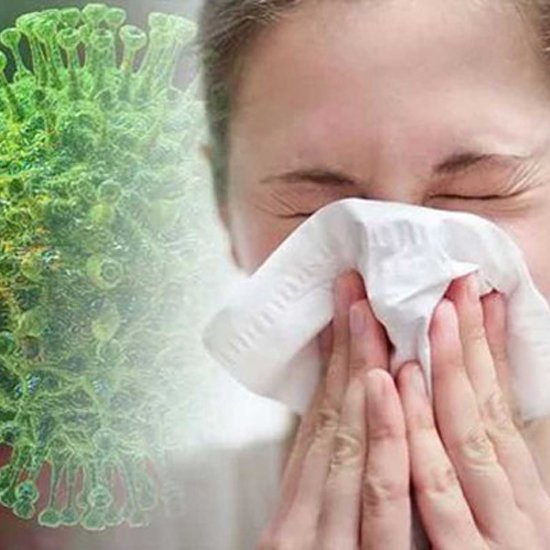
As you can see, the drugs differ in the dosage of interferon alfa-2b. This is an important criterion: there is the concept of drug load, and it is the higher, the greater the amount of the active substance. On the other hand, do not forget about efficiency. Why are the dosages so different?
It's all about the formulation. In the focus of inflammation, interferon is destroyed, and antioxidants are needed to preserve it. They are not present in Kipferon®. Perhaps that is why the dosage is the highest among analogues. Manufacturers of Viferon® added vitamins C and E to the composition, which protect interferon molecules from destruction. Due to this, the content of the active substance was reduced to 150,000 IU. As for candles "Genferon® light" (125,000 IU), they contain taurine, which is not only a powerful antioxidant, but also has antiviral activity [9]. This made it possible to further reduce the dosage (and hence the drug load) without sacrificing efficacy.
Notes
To protect your baby from infections, family members must also carefully monitor their health. So, for the purpose of prevention, you can use the spray "Genferon® light" (the product is approved for use from the age of 14). It is also extremely important to take precautions after contact with sick people.
So, for the purpose of prevention, you can use the spray "Genferon® light" (the product is approved for use from the age of 14). It is also extremely important to take precautions after contact with sick people.
Homeopathic medicines
Alternative medicine, based on the principle of treating “like with like”, has partially penetrated into official science. Popular homeopathic remedies - Oscillococcinum® (P N014236/01)[10], "Naturcoxinum" (LSR-007708/09)[11], Aflubin® (P N013116/01)[12] - are sold in pharmacies and can be prescribed for colds . According to the manufacturers, these drugs smoothly adjust the work of the immune system and "tune" the body to recovery. At the same time, information about their pharmacokinetics (absorption and excretion from the body) is not provided, and many doctors even consider homeopathy as a pseudoscience[13].
Release-active preparations
In terms of the concentration of active substances, they are close to homeopathic preparations, since they are also the result of repeated dilution of the original substance (in this case, these are antibodies to interferon).

